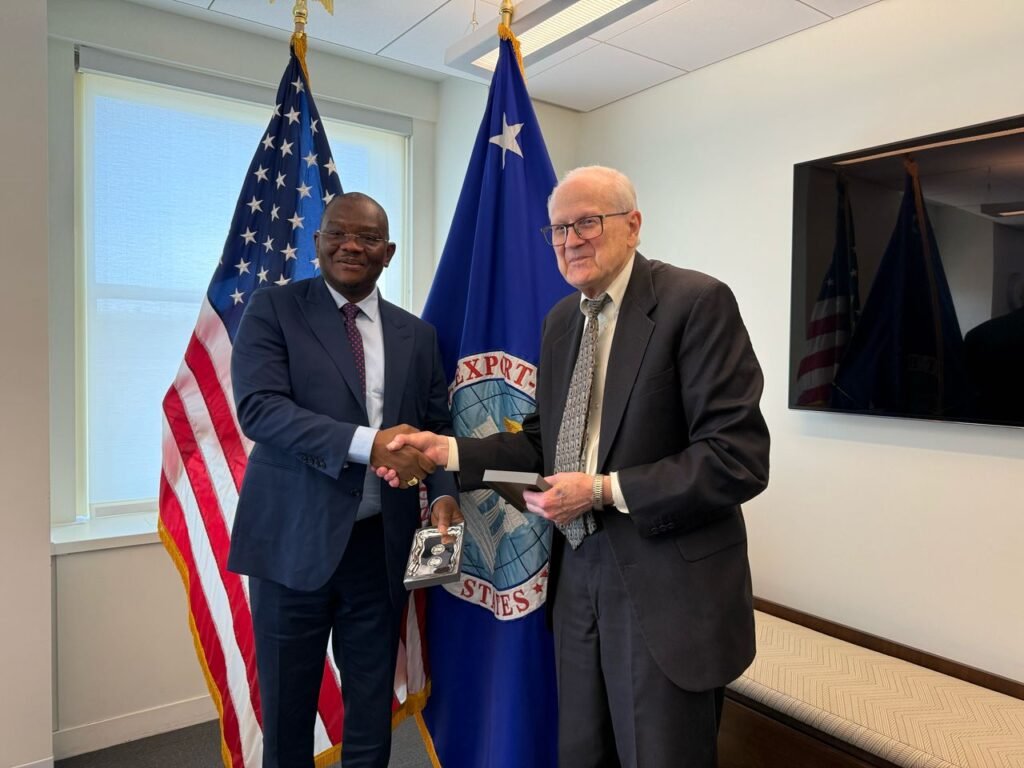Hot!
Ghana advances women’s football development with expanded national team structure

In a clear statement of intent towards enhancing Women’s 1¹¹¹1 development, Ghana has announced the formation of new national teams across additional age categories.
This initiative aligns with Ghana’s overarching Women’s Football Strategy, which seeks to create a sustainable pathway for player progression from grassroots levels to elite competition.
With the addition of the U16, U18, U19, U21, and U23 squads, the West African nation now boasts a comprehensive structure catering for the progression of female football talent. The newly created categories are configured to complement the already established U15, U17, U20, and senior national team, the Black Queens.
This strategic move underscores Ghana’s commitment to nurturing young talents and building a productive pipeline for the progression of future stars in Women’s Football.
The newly introduced national teams will serve as pivotal platforms for player development, providing opportunities for aspiring footballers to hone their skills and gain invaluable experience at various stages of their careers.
It’s noteworthy that while the existing teams, including the U15, U17, U20, and senior national team, primarily focus on competitive endeavors, the recently formed squads—U16, U18, U19, U21, and U23—are designed with a clear developmental mandate.
These teams will function as incubators for emerging talent, offering structured training programs, exposure to international competitions, and expert coaching to nurture the potential of young footballers.
By investing in youth development and providing comprehensive support systems, Ghana aims to enhance the quality and depth of its talent pool, thereby strengthening its position in Women’s Football in Africa and globally.
The significance of this expansion goes beyond mere numbers; it symbolizes Ghana’s proactive approach towards gender equality and inclusivity in sports.
By bolstering opportunities for young female footballers, the nation not only cultivates athletic prowess but also empowers women to excel in traditionally male-dominated fields, promoting diversity and social inclusion.
The introduction of these age-specific national teams, further underscores Ghana’s recognition of the importance of early talent identification and nurturing.
By establishing structured pathways for talent development, the nation ensures that promising young players receive the guidance and support needed to realize their full potential, ultimately enriching the talent pool of Ghanaian football.
As the new national teams embark on their journey, they carry the hopes and aspirations of a nation eager to witness the emergence of future football icons.
Their success will not only be measured by victories on the pitch but also by the enduring legacy of empowerment and opportunity they represent for generations to come.
In the ever-evolving landscape of women’s football, Ghana stands at the forefront of progress, blazing a trail of innovation and inclusivity.
With the establishment of national teams across all age categories, the nation paves the way for a brighter and more equitable future for female footballers, solidifying its position as a beacon of inspiration for the global football community.
GFA COMMUNICATIONS
Hot!
GEXIM deepens relations with US EXIM Bank

A management team of the Ghana Export – Import Bank (GEXIM) led by the Acting Chief Executive, Sylvester Mensah met with the leadership of the Export–Import Bank of the United States (US EXIM) on Wednesday April 23, 2025 in Washington DC, United States of America.
The Acting President and Chairman of US EXIM, Mr. James C. Cruse and Vice President, International Relations, Ms. Isabel Galdiz received the GEXIM delegation, which included Deputy CEO for Banking, Mr. Moses Klu Mensah and Head of International Cooperation, Mr. Jonathan Christopher Koney at the headquarters of US EXIM.

The meeting offered the GEXIM team the opportunity to share the strategic direction of the Bank in line with the resetting agenda of the President of the Republic, His Excellency John Dramani Mahama for the repositioning of the Ghanaian economy into an export-led one by providing the requisite investment to Ghanaian businesses.
Mr. James C. Cruse expressed US EXIM’s eagerness to deepen its existing relations with GEXIM and proposed the signing of a new Cooperative Framework Agreement following the expiration of a Memorandum of Understanding signed in 2019 to utilize US EXIM’s medium term loan guarantees to procure machinery by GEXIM for qualified Ghanaian Small and Medium-sized Enterprises (SMEs).
Mr.Sylvester Mensah thanked the Acting President and Chairman of US EXIM for hosting the GEXIM delegation and reaffirmed the Ghanaian government’s commitment to strengthening trade and investment between Ghana and its global partners for economic transformation of Ghana with GEXIM playing a pivotal role.
The two teams will be meeting on the sidelines of the 2025 US EXIM Annual Conference on 29th and April 30, 2025 to explore possible areas of collaboration and matching Ghanaian businesses to American companies. The meeting ended with an exchange of gifts.
Hot!
Many SOEs have been used as mere instruments for personal wealth accumulation –Pres.Mahama

President John Dramani Mahama has expressed concern over the misuse of State-Owned Enterprises (SOEs) for personal financial gain by individuals in leadership positions.
Speaking during a meeting with Chief Executives of specified entities under the State Interest and Governance Authority (SIGA) on Thursday, March 13, the President directly attributed the dire state of SOEs to their leadership, accusing chief executives, management teams, and governing boards of prioritising personal enrichment over organisational efficiency.
He pointed to bloated budgets, unjustified allowances, and unnecessary expenditures as factors draining public funds while SOEs continue to rely on government bailouts.
“Many SOEs have been used as mere instruments for personal wealth accumulation by appointees. The chief executives, management, and boards of these enterprises are responsible for this situation. Some SOEs have become perennial loss-makers, draining public funds with bloated budgets, unjustified allowances, and unnecessary expenditures while relying on government bailouts as if entitled to them. Many of these entities are at their lowest point in the entire history of the Fourth Republic,” he said.
President Mahama further noted that many SOEs have been plagued by inefficiencies, corruption, and mismanagement, leading to consistent financial losses. He cited the 2023 State Ownership Report by the State Interests and Governance Authority (SIGA), which highlighted systemic inefficiencies and wasteful expenditures within these entities.
He therefore reaffirmed his commitment to reforming under-performing SOEs and ensuring they serve national interests.
He warned that loss-making SOEs will no longer be tolerated and will either be merged, privatised, or closed.
“I will assess you based on your performance. If you do not align with the pace of the reset agenda, you may be asked to step aside. If that adds to the horror movie, so be it,” he added.
Source: Myjoyonline.com







